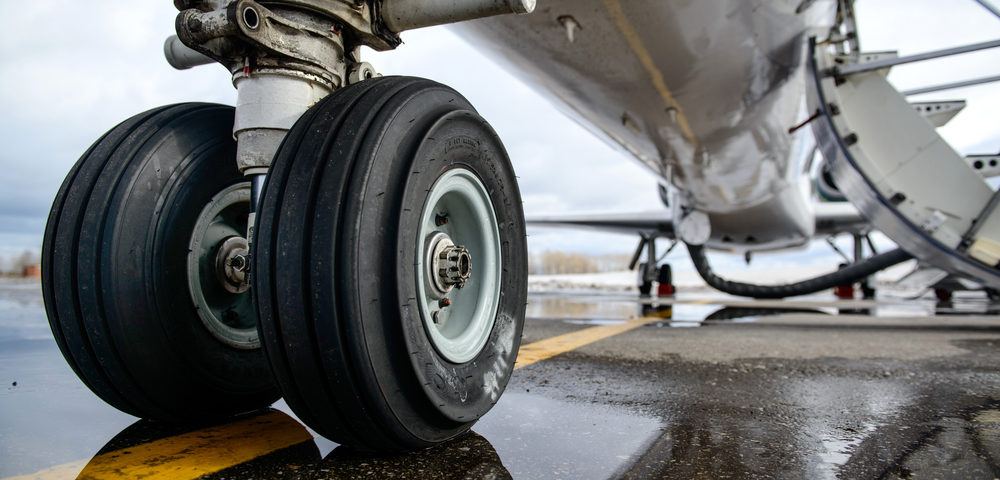The tourism sector, airlines, airports, aircraft manufacturers, governments and international organisations need to work in co-operation to take immediate action to rethink aviation in order to head off the carbon crisis.
The crisis is not at some vague point in the future – it is with us today.
Witness rampant bushfires in Australia and California, the fastest melting of ice in Greenland in 12,000 years and the melting of the permafrost at the Batagaika crater in Siberia. Worryingly, some of these may be signs that we may already be too late.
WTM Virtual as an integral part of the tourism ecosystem, has published a new expert white paper – Decarbonising aviation: The route to net zero for the travel and tourism industry – looking at what needs to be done right now.
The closure of borders and increased concern about travelling, both internationally and domestically due to the Covid-19 pandemic have shown very clearly the aviation sector’s contribution to carbon emissions.
One piece of research[1] estimates that daily carbon dioxide emissions in aviation were 60% lower in early April 2020 than the average 2019 level.
The climate crisis has not gone away while the pandemic has ravaged the world.
In order to limit global temperature rises to below 2°C that the world signed up to in the Paris Agreement and the 1.5°C countries are optimistically hoping to achieve, the air transport sector needs to make significant changes to the way it operates in order to reach zero carbon emissions as soon as possible.
This includes supporting the development of e-fuels – sustainable aviation fuels produced directly from CO2 – initially from industrial chimneys which have not yet achieved zero emissions and later taken directly from the atmosphere.
They can be “dropped-in” and mixed with the current fossil fuels used by aircraft.
It will also require by manufacturers to fast-track the development of aircraft powered by electric engines, hydrogen, and fuel cells as well as requiring the sector to adopt new ways of flying.
The new white paper makes a number of recommendations:
- Governments and international bodies must mandate e-fuel blending rates;
- Tour operators and destinations must insist that airlines and airports adopt or accept e-fuel mixtures notwithstanding the higher cost for tickets associated with e-fuel use;
- Airlines must make greater use of drop-in e-fuels, at least for the short- to mid-term, and explore other sustainable fuel options such as hydrogen for the longer term;
- Aircraft manufacturers must invest more in the development of zero-emission aircraft and speed up the pace of fleet replacement;
- Governments should withdraw support for the development of existing aircraft technology in favour of e-fuels and hydrogen fuel cells;
- International commitments to adopt carbon-friendly flight procedures, such as the Single European Sky and to avoid parts of the atmosphere where contrails develop;
- More offsetting, using only certified, high quality schemes, in the short term;
- Travellers must vote with their feet, selecting more environmentally friendly options and forcing airlines to make the changes or switching to other modes of transport.
The paper is the outcome of a virtual symposium organised by WTM Virtual and bringing together leading experts on decarbonising aviation from around the world (see notes).
The symposium was put together by Dr Harold Goodwin, Professor of Responsible Tourism at Manchester Metropolitan University and advisor to WTM London, Professor Paul Peeters, professor of sustainable transport and tourism at Breda University of Applied Sciences in the Netherlands and international aviation policy analyst Chris Lyle.
“The climate crisis gathers pace and there is no longer time for procrastination, even though the world is struggling to deal with the coronavirus pandemic,” said Dr Goodwin.
“There is an alternative. The tourism industry should require governments to force the aviation sector to develop and adopt zero-carbon fuels before there is a forced reduction in flying.”
Professor Paul Peeters says, “Until 2015, I thought the main option to significantly reduce aviation’s emissions would be to reduce the distances people fly and replace short-haul flights with sustainable transport modes. But currently all points to a combination of mandating e-fuels and the development of fuel-cell aircraft. For both, the industry is ready to deliver, but all now depends on sectoral and political will. It is the choice of tourism and travel sectors.”
WTM London’s Senior Exhibition Director Simon Press said,
“Aviation’s contribution to the climate crisis is a problem that needs a solution. It is not just the aviation sector’s problem – travel and tourism as a whole need to recognise the problem. We currently stand at an important crossroads in travel and tourism, where the direction we take will make an enormous difference to our destination.”
The white paper is available for download at Decarbonising aviation: The route to net zero for the travel and tourism industry
NOTE
The virtual symposium, available to watch at https://hub.wtm.com/decarbonisation-of-aviation-event-17th-june/, brought together the following experts on decarbonising aviation:
- Dr Harry Lehmann of Germany’s Umwelt Bundesamt (Federal Environment Agency);
- Dr Carola Kantz of Germany’s VDMA (Mechanical Engineering Industry Association) Power-to-X applications working group;
- Dr Marc Stettler, senior lecturer in transport and environment, Centre for Transport Studies at Imperial College London;
- Joris Melkert, senior lecturer, faculty of aerospace engineering, TU Delft
- Daniel Juschus, aerospace engineering masters’ student;
- Professor Pericles Pilidis, UK representative of ISABE, TU Delft
- Professor Gustavo Alonso, school of aerospace engineering, Universidad Politecnica de Madrid;
- Gerard Rijk, equity and financial analyst, Profundo;
- Job Rosenhart, senior advisor on the sustainability of aviation, Ministry of infrastructure and water management, Netherlands.
Interviews about the need to decarbonise aviation with politicians and tourism experts in destinations are available to watch at https://hub.wtm.com/destination-responses-to-decarbonising-aviation/.
Decarbonising Aviation Blog Post: https://hub.wtm.com/decarbonising-aviation/
[1] Temporary reduction in daily global CO2 emissions during the COVID-19 forced confinement, Corinne Le Quéré et al, Nature, 19 May 2020, https://www.nature.com/articles/s41558-020-0797-x


